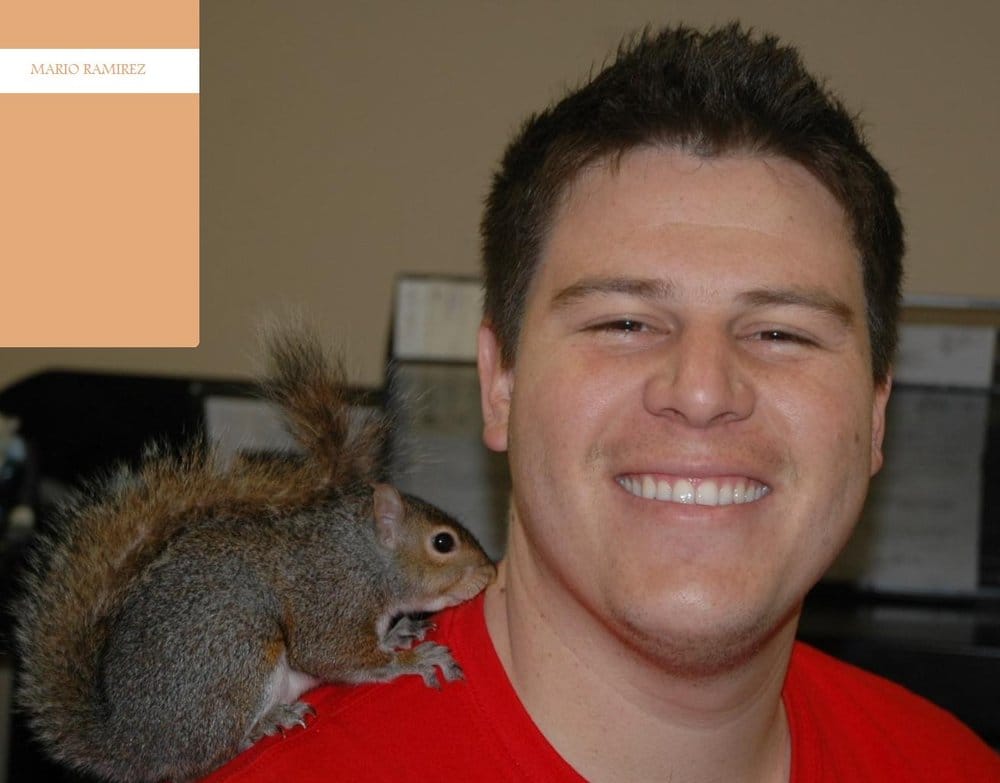After years of experience and thousands of jobs performed by Mario Ramirez and his crew at Forsyth Wildlife, we have desired to write an article on why? and how? squirrels get inside attics, fireplaces, walls, and even inside homes.
Understanding that having noises and or animals in your attic is a problem, many home and business owners do not really understand the seriousness of the issue since it is the first time they have had to deal with it. Most people are mislead to solutions such as poisoning and trapping that will cause more harm than good at the end. Poisoning creates unhealthy environments, and odors; trapping may leave young alone to die. When animals nest and take control of an attic they do not understand the functionality of cables, pipes, or insulation. Animals are nesting, searching for food and for materials suitable for building comfortable nesting sites. Cable and piping chewing and damaging building useful resources such as insulation, siding, and wood are just the natural way animals survive.
Why are squirrels inside attics, crawl spaces, or houses? Starting with attics and crawl spaces, squirrels get there because of a nice temperature difference, the height, and the abundance of nesting materials. When animals are searching for food and a place to nest, they find comfortable the fact that through openings they can sense either a cooler or a warmer space inside the opening (hole in foundation, siding, roof, or soffits.) depending on the season. Based on experience squirrels will get into homes and businesses around fall and winter more than in the summer, but they still get inside year round.
Squirrels inside a house or a business are more of an accidental entry, a door left open, a window left open or an attic door left down for a long time are normal accidental entry ways. More than once squirrels have found ways to get inside homes through the fireplace or chimney, they will find that a chimney is comfortable and gain access inside by chewing holes in the siding or under the chimney. When inside fireplaces and chimneys, squirrels find easy access inside homes.
How do squirrels get in attics, crawl spaces, or houses? Contrary to many assumptions squirrels, rats, and other small animals can easily climb walls, pipes, stucco, brick, and any construction material used to protect a building from the elements. Initially one assumes that squirrels have to jump from trees in order to get to an attic, and even though commonly we face the case where squirrels and rats jump from trees to roofs; more often than not, we find that squirrels climb up from the ground to the roofs. My understanding is that most homes are high and squirrels are used to the climbing trees to get to nesting sites, a home compares to a tree with a really wide trunk and that is why squirrels climb up to attics.
Other articles Related to this one are:
- Attic and Wall noises
- Squirrel and Rodent Damage inside walls, attics, and crawl spaces
- Health Risks associated with animals inside human environments
- Should I hire a professional (Forsyth Wildlife) or a roofer or a gutter expert to secure my house against animals?
- What are electronic and liquid repellents, and do they work?
- Traps vs. Poison for animals
- Identification of animal droppings
- Risks of DIY trapping and repair work
- Squirrel, rat, and other animal nesting season






